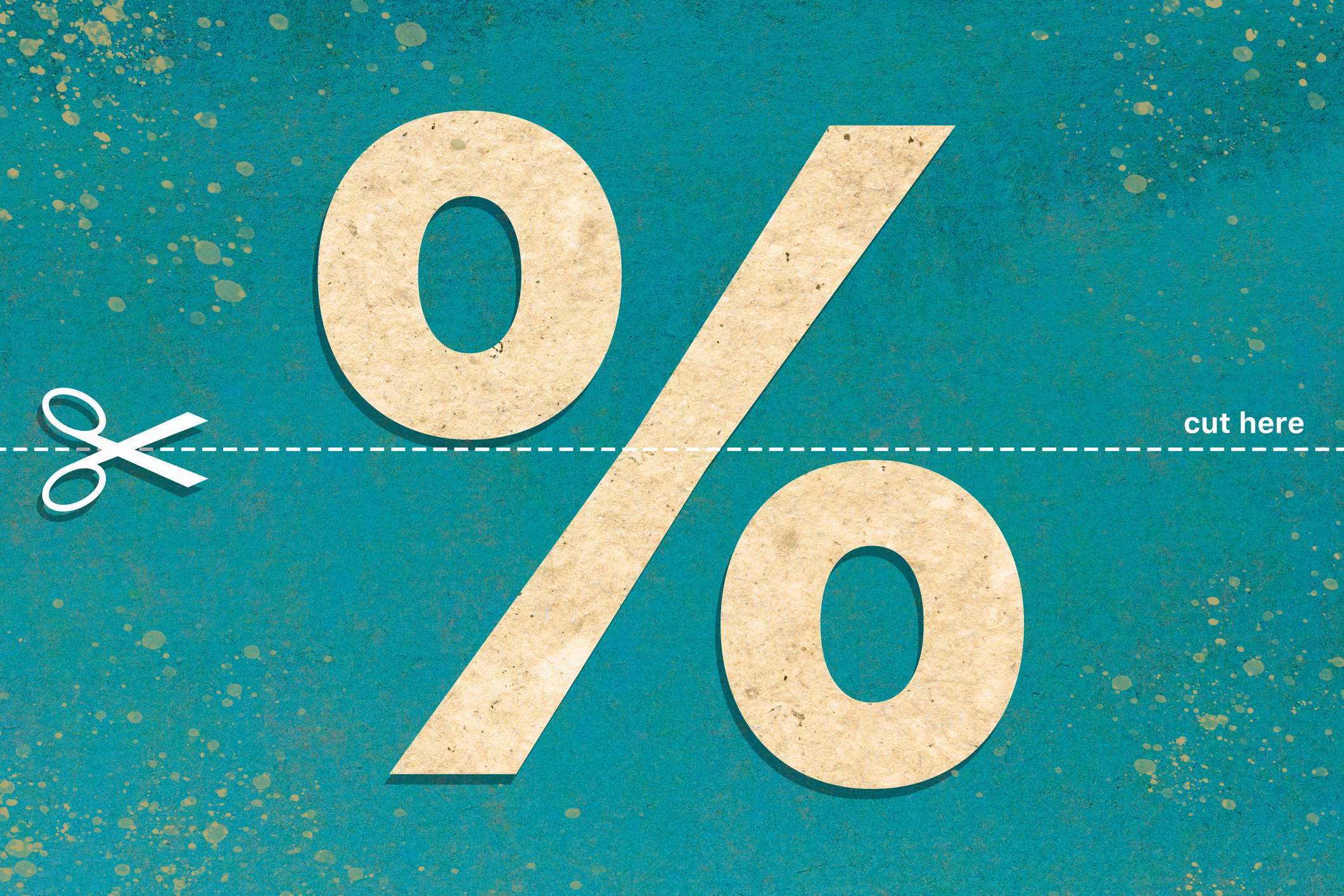The Dollar Index Is Sliding. Is Your Portfolio Prepared?
The dollar's fall has been troubling because inflation appears to be constrained and the economy has been strong. Here's what it means for investors.


Profit and prosper with the best of Kiplinger's advice on investing, taxes, retirement, personal finance and much more. Delivered daily. Enter your email in the box and click Sign Me Up.
You are now subscribed
Your newsletter sign-up was successful
Want to add more newsletters?
If you're like most investors, you have spent little or no time thinking about the U.S. dollar. Start worrying.
Lately, the dollar has been dropping sharply in value against other currencies.
The primary U.S. Dollar Index (DXY), which goes by the nickname "Dixie," measures the U.S. currency against a basket of six others: the euro, Japanese yen, British pound, Canadian dollar, Swedish krona and Swiss franc. The euro carries by far the most weight in the basket.
From just $107.88 $24.99 for Kiplinger Personal Finance
Become a smarter, better informed investor. Subscribe from just $107.88 $24.99, plus get up to 4 Special Issues

Sign up for Kiplinger’s Free Newsletters
Profit and prosper with the best of expert advice on investing, taxes, retirement, personal finance and more - straight to your e-mail.
Profit and prosper with the best of expert advice - straight to your e-mail.
Dixie has been sliding since the beginning of 2025, falling from 109 on the index to just below 100.
But currency fluctuations aren't unusual. In this century, the Dollar Index has bounced between 72 and 118. In 2008, the euro hit $1.57, and by 2022 it had fallen below parity with the dollar, at 98 cents. Now, one euro costs $1.13. (Prices and other data are through May 31; investments I like are in bold.)
The dollar's fall has been especially troubling because inflation appears to be constrained and the economy over the past few years has been strong.
There are several reasons for the decline. Tariffs top the list. Normally, higher tariffs should strengthen the dollar by making foreign products less attractive. "Currency appreciation is a common impact of tariffs," says the Tax Foundation.
But in this case, a chaotic, on-again, off-again tariff policy and ensuing court battles have caused deep uncertainty about U.S. economic policy in general, making investors shy away from the dollar.
Chaos typically favors the dollar as foreigners flee to the U.S. currency – mainly through purchases of U.S. Treasury securities – because they see the United States as a safe haven in a storm. But that's not happening. Quite the opposite.
Why? Because the economic chaos, including the extreme volatility of the stock market, is attributed to actions of the U.S. itself.
The dollar rose in value immediately after 9/11 and during the worst of COVID. No one blamed U.S. economic decisions for those disasters. But now, the world's investors are concerned about the trade wars that the U.S. has ignited and about something else: the federal deficit.
The dollar is sliding as the U.S. goes deeper into debt
As a percentage of gross domestic product (GDP), the deficit for 50 years starting in 1960 has generally been in the range of 2% to 3%. Lately, the norm has become around 5%.
The financial firm Alliance Bernstein is now projecting 7% for the next 10 years, with interest on the debt exceeding $1 trillion annually.
Investors who may have been hopeful that a Republican administration would set the U.S. on a more stable fiscal course are now concerned about U.S. instability – especially in the wake of a May downgrade of Treasury bonds by Moody's, the ratings agency. The dollar is bearing the brunt of those concerns.
The euro and yen have been rising against the dollar, and so has that rock of stability, the Swiss franc.
Alphabet (GOOGL) and Pfizer (PFE) this year have sold bonds denominated in euros, valued at almost $100 billion. Kenneth Rogoff, the Harvard economist, argues in his new book, Our Dollar, Your Problem, that the U.S. currency's lofty status is on the wane.
What does the dollar's decline mean for investors?
What does all this mean for investors who believe that the dollar's decline is not transitory?
First, understand that when the dollar falls, businesses that have a high proportion of sales abroad benefit as their revenues in euros or yen are converted back to dollars.
For that reason, I like U.S. companies that have significant exposure to international sales – especially firms that sell services that are unlikely to be badly hurt, if at all, by trade wars that focus tariffs on goods instead.
A good example is Netflix (NFLX). Some 59% of its sales are abroad, according to a Goldman Sachs analysis.
Bookings Holdings (BKNG), which owns Priceline and OpenTable, among other services, collects 89% of its revenues abroad. For Mastercard (MA), the figure is 70%; for Las Vegas Sands (LVS), which operates casino resorts in Macao and Singapore, it's 100%.
A few months ago, I recommended European stocks, arguing that the continent has been "shaken out of its lethargy."
So far this year, the iShares Europe ETF (IEV), a popular exchange-traded fund, has returned 22%, compared with just 1.1% for the S&P 500.
If President Trump socks Europe with big tariffs, as he has threatened, European companies that trade with the U.S. will be in jeopardy, but more domestic-focused firms will be spared.
Even more than the ETF, which includes large multinationals that will suffer from tariffs, I like European banks, including Italy's UniCredit (UNCRY) and Raiffeisen Bank International (RAIFY), based in Vienna, which has risen 59% since the start of the year but still trades at an absurdly low price-to-earnings (P/E) ratio of 6.
Another good choice is UBS Group (UBS), the Zurich-based bank with a strong wealth-management component. Shares have tripled in the past five years, and the valuation is higher than it is for other European banks.
In this environment, look for anything Swiss. Other attractive choices are Zurich Insurance Group (ZURVY) and Swisscom (SCMWY), a telecom company with the largest fiber-optic network in the country. In both cases, shares have been rising smartly as the dollar has dropped.
While Europe has a resilient currency and can weather a tariff storm, I am not so sanguine about Asia, where nearly every country is deeply connected with China, the main target of U.S. economic animosity today.
Brazil, which ranks among the top 10 countries in gross domestic product, offers an enticing alternative. Again, to avoid tariff risk, stick with companies whose markets lean domestic or regional and that sell services. Brazil's currency, the real, has risen in value lately, and inflation is modest (5.5%) by the continent's standards.
One of Brazil's best prospects is 82-year-old Banco Bradesco (BBD), with an array of banking and insurance products. It has risen 56% this year, but the valuation remains low.
Two Brazilian small caps offer intriguing, though riskier, alternatives. The first is StoneCo (STNE), which provides payment technology to the nation's businesses.
The second is Cogna Educacao (COGNY), which offers private education services, online and on campus, from kindergarten through university. Both stocks have been on a tear.
What about trading currencies themselves? With its heavy leverage and dangerously sharp moves, currency trading is for professionals only. Nor do I advocate investing in bitcoin or gold as an antidote to a weakening dollar.
Enthusiasts may prove correct, but I agree with Warren Buffett that bitcoin is a "gambling token" and prefer to invest in the imaginative power of human beings running good businesses.
The dollar is used in 50% of global transactions, and it will likely retain its position as the world's reserve currency. But as the U.S. reputation for rule of law and economic stability falls, so will the dollar.
Professor Rogoff is persuasive when he says that the U.S. currency "is about to get knocked down a couple pegs." Wise investors will want to use part of their portfolio to hedge against this unpleasant prospect.
James K. Glassman chairs Glassman Advisory, a public-affairs consulting firm. He does not write about his clients. His most recent book is Safety Net: The Strategy for De-Risking Your Investments in a Time of Turbulence. He owns none of the securities mentioned here. You can reach him at JKGlassman@gmail.com.
Note: This item first appeared in Kiplinger Personal Finance Magazine, a monthly, trustworthy source of advice and guidance. Subscribe to help you make more money and keep more of the money you make here.
Related content
Profit and prosper with the best of Kiplinger's advice on investing, taxes, retirement, personal finance and much more. Delivered daily. Enter your email in the box and click Sign Me Up.

-
 QUIZ: Are You Ready To Retire At 55?
QUIZ: Are You Ready To Retire At 55?Quiz Are you in a good position to retire at 55? Find out with this quick quiz.
-
 10 Decluttering Books That Can Help You Downsize Without Regret
10 Decluttering Books That Can Help You Downsize Without RegretFrom managing a lifetime of belongings to navigating family dynamics, these expert-backed books offer practical guidance for anyone preparing to downsize.
-
 New Ways to Keep Online Accounts Safe
New Ways to Keep Online Accounts SafeAs cybercrime evolves, the strategies you use to protect yourself need to evolve, too.
-
 The Merger Market is Heating Up. Here's How to Cash In
The Merger Market is Heating Up. Here's How to Cash InInvesting in takeover deals can be a low-volatility way to diversify your portfolio.
-
 Vanguard Cuts Fund Fees Again. Here's Why That's Important for You
Vanguard Cuts Fund Fees Again. Here's Why That's Important for YouVanguard recently cut fees on dozens of ETFs and mutual funds, which is great news for investors. Here's why.
-
 Will Your Children's Inheritance Set Them Free or Tie Them Up?
Will Your Children's Inheritance Set Them Free or Tie Them Up?An inheritance can mean extraordinary freedom for your loved ones, but could also cause more harm than good. How can you ensure your family gets it right?
-
 I'm a Financial Adviser: This Is the Real Key to Enjoying Retirement With Confidence
I'm a Financial Adviser: This Is the Real Key to Enjoying Retirement With ConfidenceA resilient retirement plan is a flexible framework that addresses income, health care, taxes and investments. And that means you should review it regularly.
-
 Life Loves to Throw Curveballs, So Ditch the Rigid Money Rules and Do This Instead
Life Loves to Throw Curveballs, So Ditch the Rigid Money Rules and Do This InsteadSome rules are too rigid for real life. A values-based philosophy is a more flexible approach that helps you retain confidence — whatever life throws at you.
-
 Big Nvidia Numbers Take Down the Nasdaq: Stock Market Today
Big Nvidia Numbers Take Down the Nasdaq: Stock Market TodayMarkets are struggling to make sense of what the AI revolution means across sectors and industries, and up and down the market-cap scale.
-
 Trump's New Retirement Plan: What You Need to Know
Trump's New Retirement Plan: What You Need to KnowPresident Trump's State of the Union address touched upon several topics, including a new retirement plan for Americans. Here's how it might work.
-
 Buy and Hold … or Buy and Hope? It's Time for a Better Retirement Planning Strategy
Buy and Hold … or Buy and Hope? It's Time for a Better Retirement Planning StrategyOnce you're retired, your focus should shift from maximum growth to strategic preservation and purposeful planning to help safeguard your wealth.